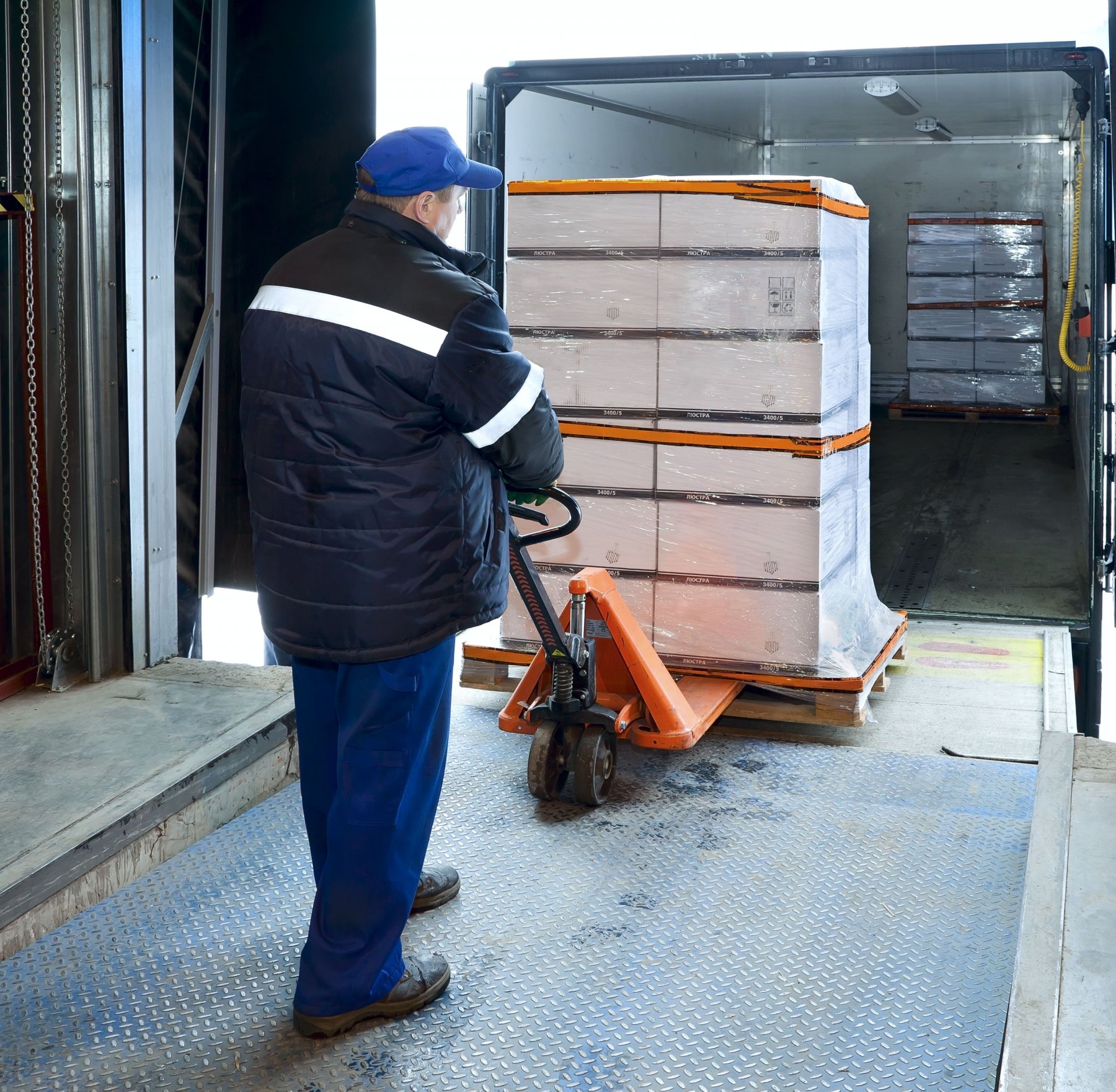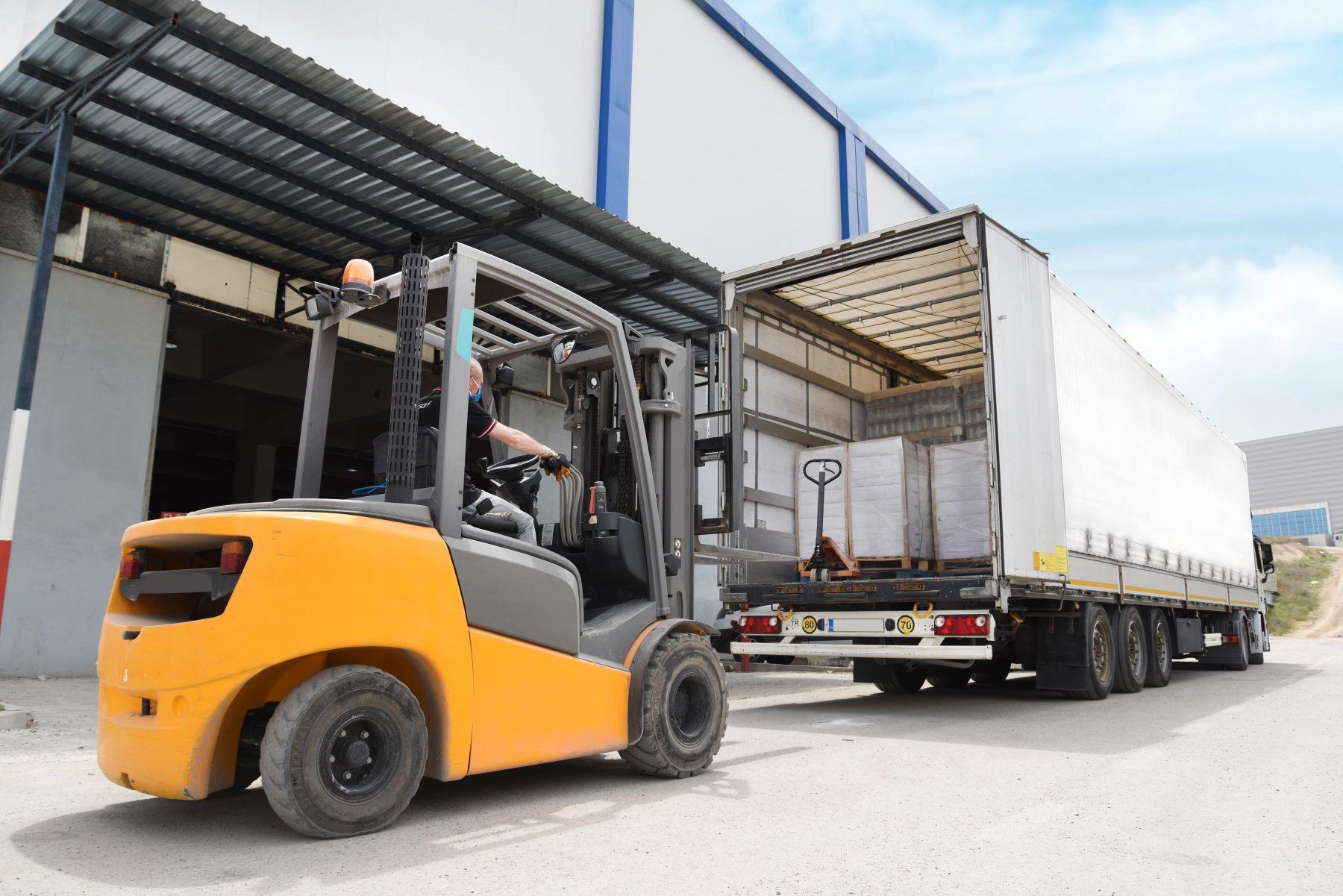Whatever happens globally, one constant is the necessity for truckers to understand how to locate cargo to haul. Through freight recessions, capacity shortages, pandemics, and recoveries, trucks must continue to operate in order to be compensated. After all, each independent owner-operator's primary objective is to secure high-paying truck loads.
Finding the greatest truck loads and looking for good freight routes are crucial to maximizing profitability. But not all truck loads are equal, with some lanes paying less than others. Unless you find workable solutions to get high-paying trucker loads often, you can’t achieve success in your trucking operations.

How To Increase Your Chances Of Getting High-Paying Truck Loads
Your livelihood as a trucker relies on how much you haul or deliver. Whether you're the owner of a large truck company or the owner of a small fleet, you're constantly searching for freight that can pay very well. Of course, that’s easier said than done given that many trucking firms struggle due to their inability to get high-paying cargo. Here's how you can increase your chances of getting high-paying truck loads:
1. Turn To Load Boards
Load boards may be accessed online through a website or a freight application. Numerous load boards allow you to utilize your chosen device, be it a mobile phone, tablet, or PC. You can find a wide range of solutions on load boards, enabling you to discover the highest-paying truck loads more quickly. You need to establish a network of trustworthy freight brokers and shipper partners and handle all the elements of your trucking company efficiently as the owner-operator.
When it comes down to it, the most significant load for trucks board would enable you to earn more money while experiencing less stress, dealing with fewer hassles, and spending less time. To use a load board, you have to first log in to the particular site or application. The best method to utilize a load board by a carrier is to either search for or post an empty vehicle to let brokers know that you're searching for loads for that truck. When carriers or couriers look into load boards, they mostly go for a load board that isn’t full of empty vehicles no one has booked yet.
2. Look For Freight Brokers
Shippers prefer to deal with freight brokers as middlemen since they’d have just one point of contact from A to Z as their cargo travels to its destination. Working with a broker removes the complex processes of negotiating, arranging routes, and freight monitoring. Carriers also prefer to collaborate with freight brokers to optimize their routes and reduce deadhead miles, increasing their revenues in less time.
Freight brokers link shippers with drivers, which is an excellent choice for newcomers. They assist truck owner-operators and fleet owners in locating a truck for loads. Utilizing a freight broker is one method of obtaining cargoes for trucks, although it may be costly. That’s why you should keep an eye out for any additional fees connected with this kind of service.
3. Hire A Dispatcher Directly
Freight dispatchers are a crucial element of a fleet's back-office operations. They can assist you in growing and managing your fleet by bridging the gap between customers, drivers, and owner-operators. Freight dispatchers, sometimes known as truck dispatchers, ensure that your fleet has truck loads to transport, operates on time, and fulfills client criteria. You can opt to directly hire a dispatcher with industry expertise and connections or contract with a trucker dispatching agency to assist you in connecting with brokers and shippers alike.
Because freight dispatchers are constantly in touch with clients and drivers, practical communication skills are essential. Customer service abilities are critical for this position as well. Successful dispatchers may contribute to developing stronger client connections, the promotion of safe driving habits, and the assurance of on-time deliveries.
4. Register As A Government Contractor
There's another alternative to the purchase of high-paying truck loads: public freight. Government freight doesn't just have to come from the federal government—it can also be from state and municipal administrations. They have commodities and products that must be transported, and not only amid natural disasters or national emergencies.
The state needs transport company services to carry various specialized goods, from tanks to critical supplies and everything in between. Some of these goods need security clearances, so keep in mind that this kind of job may take a long time and entail a lot of paperwork if you're not clear enough to transport arms and ammunition.
There's a lot of rivalry in the trucking business in general. Therefore, it's essential to outlaw the competition and adequately understand each government contract's particular needs. It's also necessary to have a clear knowledge of your expenses and how to make an offer.
The easiest way to register as a government contractor is to collaborate with a business with a government contract. Indeed, the Transport Department advises establishing a partnership with another company to enhance any offers you make for freight services.
5. Prospect Shippers
The lifeblood of all companies is prospecting and completing sales funnels. Freight brokers are no exception to this rule in their approach to truck sales. Prospecting is, for good reason, one of the main duties of freight brokers.
Cold calling should always be your basis for prospecting. Freight sales are a sport of contact, so the more connections you create, the more success you’ll achieve in bringing sales. Also, your message has to be brief and timely if you're sending cold emails. Shippers are flooded with customers phoning and emailing for their freight day after day.
A complete sales funnel is one of the keys to controlling your destiny and reaching your trucking sales targets month by month. The more prospects you have, the less tension you have to shut down via your sales process.
6. Build A Good Network
Truck drivers are increasingly responsible for developing and maintaining their network. Connection to like-minded experts in the context of business is necessary to create better relationships for business purposes. While networking has always been a significant component of the truck driving business, new technological advancements have facilitated stronger professional networks for truck drivers.
The trucking business utilizes social media for different reasons, just like other sectors. The most frequent use of social media is recruiting, particularly in networks such as LinkedIn where truck drivers interact daily.
Joining a trucking organization may not be the best course of action if networking or prospecting are your primary objectives. There are no customers to be found there but mostly rivals. There are, however, chances of receiving references from individuals working in your field.
Shake some hands and get along with folks. You'll be amazed how this small investment may pay off in time. Many of those organizations may also provide you with industry advice on saving money for your trucking company. Some even have a membership list that you may utilize to create a prospect list.
7. Broker Your Loads
One of the important skills to acquire in the transport sector is how to find cargo, particularly for the self-employed or small fleets. You need to undergo training to become a broker, either with an established broker or via courses.
The freight broker training may educate you on the freight industry's features as well as how to locate shippers, carriers, and agents. Additionally, it demonstrates how to move freight profitably for both you and the carrier.
8. Find Out Your Unique Selling Proposition
Each company has something valuable to offer. If you lack value, there’s no incentive for anybody to do business with you. The factors that may help you establish your unique value proposition or USP are heavy loads, LTL or less-than-truckload, secure parking, high-value cargo, and paid parking.
Why would your consumers choose your services? What distinguishes your business from other logistics firms? Are your trucks and equipment more recent? Are you proud to be a small family-owned business committed to providing superior customer service?
The answers to those questions will allow you to determine your unique selling proposition (USP), which is essentially the one thing that differentiates your business from the competition.
Factors Affecting The Best-Paying Truck Loads
Understanding and forecasting supply and demand is challenging. At the highest level, truck demand is influenced by the state of the economy. Demand for truck transportation is fueled by strong gross domestic product or GDP growth, inventory replenishment, housing starts, and car manufacturing. Supply is influenced by the availability of equipment and drivers and the placement of trucks in any particular market.
Nevertheless, some factors favor trucking operations when it comes to getting the best-paying truck loads.

1. Type Of Freight
Refrigerated loads (also known as reefers) are better than dry van freight. Reefer freight is one of the transportation industry's foundations. A significant proportion of the vehicles on the road are reefer trucks.
Loads of reefer containers pay higher than the cargo of a dry van. Sensitive temperature control is frequently required for goods carried in this manner. Most food and drink businesses transport their products in a refrigerated 32-36°F trailer, which is like your home refrigerator. The majority of frozen trucks run at -10°F. Certain chemicals and pharmaceuticals need much colder temperatures. For example, Pfizer-BioNTech COVID-19 vaccines need to be delivered at -80°C to -60°C (-112°F to -76°F).
Transportation via reefer trucks is more difficult since the cargoes are sensitive to variations in temperature and because specific equipment is needed to maintain the correct temperature. Therefore, the kinds of loads that need cooling are typically more expensive than dry cargo, and shippers are willing to pay higher prices.
2. Time Constraints
Urgent freight is any product that can't be sent without any hesitation. Practically every business must carry some goods in this category, and each hour until they're delivered may cost thousands of dollars. Depending on its nature, a company may require urgently needed freight services for production supplies or finished goods.
Urgent cargoes are subject to premiums, therefore being prepared to take on a shipment that requires urgent care may enable you to get maximum freight payment regularly.
3. Location
Transporting truck loads through crowded or densely populated locations such as city centers or central business districts is challenging, time-consuming, and expensive.
Also, the longer the trip throughout the shipment process, the greater the price. Many carriers cover particular geographic areas and need to examine the number of zip codes of the carriers. If cargo is transported outside of the carrier's service area, the carrier must transfer the shipment to another carrier, through the practice of interlinking, to the ultimate delivery destination. This approach may lead to greater expenses due to decreased shipment discounts and increased freight shipping minimum levels.
4. Size And Weight Of A Truck Load
One of the main factors affecting shipping price is the weight and size of cargo. The more a cargo weighs, the lower you pay per hundred pounds. As the shipping weight increases and approaches the lowest weight in the next heaviest grade, it'll be classified as the lowest grade of weight and the lowest grade rate.
Heavy-haul cargo may require specialist operators, licenses, and perhaps even heavy-duty equipment. Oversized loads and goods weighing more than 80,000 pounds gross weight are often more lucrative jobs for trucking operators.
Conclusion
Those in the trucking industry make money by establishing a trucking business, acquiring a vehicle or fleet, and booking cargo. As with other trucking marketing strategies, it's better to experiment with many different approaches to see which one works best for you. If you know your rivals are dealing with the issue of obtaining loads for trucks in the same way, try to stand out and be unique.
Searching for an excellent load board for trucking and working with freight brokers may help you become better acquainted with business opportunities available in your location. While prospecting and networking take time to generate quality leads, companies use these tactics because they can lead to favorable results. Finding high-paying truck loads is always going to be difficult. However, if you know where to look, the process gets much simpler.

